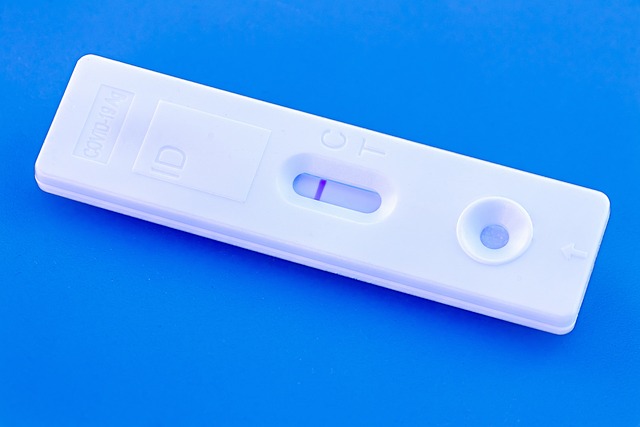Liver Function Tests (LFTs) are essential for assessing liver health in UK diabetic patients, as they detect enzymes like ALT, AST, ALP, GGT, and bilirubin. These tests help identify potential complications from diabetes or its treatment, such as fatty liver disease, hepatitis, or cirrhosis, early on. Following UK Diabetes Blood Test guidelines ensures accurate LFT interpretation, enabling healthcare professionals to tailor care and mitigate diabetic complications' impact on liver health.
In the realm of medical diagnostics, understanding Liver Function Tests (LFTs) is paramount, especially in managing conditions like diabetes. This article delves into the intricacies of standard LFTs used in the UK diabetes blood test protocol, elucidating what these tests measure and how to interpret results. By exploring normal ranges and clinical significance, medical professionals can effectively navigate the landscape of liver health in diabetic patients.
- Understanding Liver Function Tests: What They Measure
- Standard UK Diabetes Blood Test Protocol for LFTs
- Interpreting Results: Normal Range and Clinical Significance
Understanding Liver Function Tests: What They Measure
Liver function tests (LFTs) are a group of blood tests that help medical professionals assess the health and functionality of the liver. These tests measure various enzymes and proteins produced by the liver, providing insights into its overall condition. Understanding what these tests can reveal is crucial for healthcare providers in diagnosing and managing liver-related conditions, especially in patients with UK diabetes.
LFTs typically include measurements like alanine aminotransferase (ALT), aspartate aminotransferase (AST), alkaline phosphatase (ALP), gamma-glutamyl transferase (GGT), and bilirubin. Elevations in these enzymes may indicate liver damage, inflammation, or certain metabolic disorders. For diabetic patients, monitoring these markers is essential due to the potential for liver complications associated with both diabetes and its treatment.
Standard UK Diabetes Blood Test Protocol for LFTs
In the UK, standard diabetes blood test protocols for Liver Function Tests (LFTs) play a crucial role in managing patients with both diabetes and liver-related issues. These tests are designed to detect any abnormalities in liver function that may be exacerbated by or contribute to diabetic complications. The protocol typically involves measuring levels of key enzymes such as alanine aminotransferase (ALT), aspartate aminotransferase (AST), alkaline phosphatase (ALP), gamma-glutamyl transferase (GGT), and bilirubin. These markers help medical professionals assess the health of the liver, identifying potential issues like fatty liver disease, hepatitis, or cirrhosis that are often associated with diabetes.
Following the UK Diabetes Blood Test guidelines ensures consistent and accurate interpretation of LFT results, facilitating early detection and management of liver problems in diabetic patients. Regular monitoring, as recommended by these protocols, is vital to preventing and mitigating the impact of diabetic complications on liver health, ultimately enhancing patient outcomes.
Interpreting Results: Normal Range and Clinical Significance
Interpreting the results of a standard liver function test (LFT) is crucial for medical professionals to accurately assess liver health. In the UK, diabetes patients often undergo this blood test as part of their routine care due to potential liver-related complications. The ‘normal’ range for LFT results varies slightly between labs but generally aligns with established guidelines. Typically, enzymes like alanine aminotransferase (ALT), aspartate aminotransferase (AST), alkaline phosphatase (ALP), gamma-glutamyl transferase (GGT), and bilirubin are measured.
Values falling within the reference interval suggest no significant liver issues. However, elevated levels of these enzymes may indicate various conditions such as hepatitis, cirrhosis, fatty liver disease, or even diabetes-related complications like diabetic nephropathy or cardiovascular diseases. Medical professionals must consider the patient’s overall health, symptoms, and other test results to determine the clinical significance of LFT abnormalities, tailoring their approach accordingly for optimal patient care in the context of UK diabetes blood testing.
Liver function tests (LFTs) play a crucial role in diagnosing and managing liver conditions, especially for individuals with diabetes. Following the standard UK diabetes blood test protocol for LFTs ensures accurate interpretation of results, enabling medical professionals to make informed decisions. By understanding the normal range and clinical significance of these tests, healthcare providers can effectively monitor liver health and implement necessary interventions early on, thereby emphasising the importance of regular screening in patients with diabetes.
